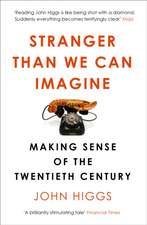Nuclear Monopoly
Autor George H. Quester, George H. Len Limba Engleză Hardback – 30 iun 2000
Preț: 592.90 lei
Preț vechi: 651.55 lei
-9% Nou
Puncte Express: 889
Preț estimativ în valută:
113.46€ • 117.79$ • 94.61£
113.46€ • 117.79$ • 94.61£
Carte disponibilă
Livrare economică 01-15 martie
Livrare express 15-21 februarie pentru 33.98 lei
Preluare comenzi: 021 569.72.76
Specificații
ISBN-13: 9780765800220
ISBN-10: 0765800225
Pagini: 234
Dimensiuni: 160 x 235 x 24 mm
Greutate: 0.55 kg
Ediția:New.
Editura: Transaction Publishers
ISBN-10: 0765800225
Pagini: 234
Dimensiuni: 160 x 235 x 24 mm
Greutate: 0.55 kg
Ediția:New.
Editura: Transaction Publishers








